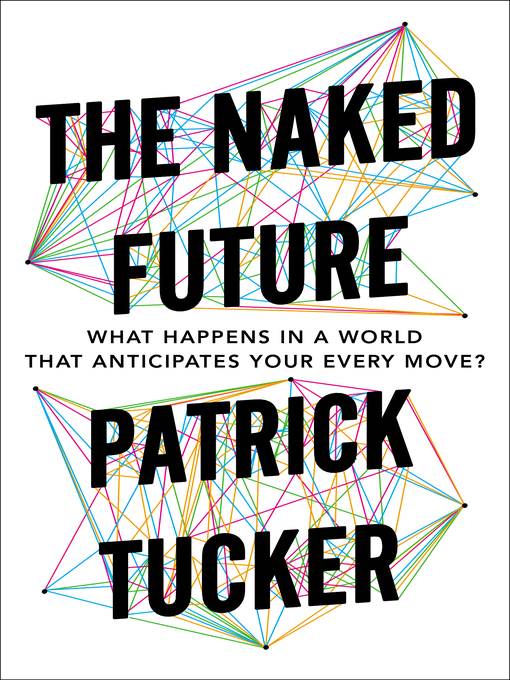
The Naked Future
What Happens in a World That Anticipates Your Every Move?
کتاب های مرتبط
- اطلاعات
- نقد و بررسی
- دیدگاه کاربران
نقد و بررسی

February 3, 2014
Every time we swipe a debit card or a subway card, activate our GPS, or post on Facebook from our phones, we leave an electronic trail for others to follow. According to the Futurist magazine’s deputy editor Tucker, each of us now creates 1.8 megabytes of data a year using our devices in such ways. Thanks to the wonders of telemetry—the transmission of measurements of data—we are now on the edge of a world in which individuals and collective agencies will be able to use our data to predict many aspects of our lives. In this fascinating and gripping book, Tucker illustrates how such predictive powers will tell us about our personal health before we know it and how that health will affect others, where and when a crime might happen and who might become a victim of a crime, and when you might fall in love. As much as we wish to retain our privacy, even when using these devices, the future in which we stand naked to the world is closer than we imagine, according to Tucker.

February 15, 2014
An upbeat view of big data as an empowering means for predicting the future. Futurist magazine deputy editor Tucker provides an anecdote-filled account of the many ways in which massive sets of data--the same digital information often used by governments and large corporations for privacy-invading tracking and surveillance--can be used by individuals to "live much more healthily, realize more of your own goals in less time [and] avoid inconvenience and danger." Based on interviews with hackers, entrepreneurs, scientists and others, the author argues that a "thrilling and historic transformation" lies ahead in our ability to predict the future using continuously sourced streams of information accessed via smartphones. Such information, distributed from the site of a fire or disaster as a live-stream video by anyone with a cellphone, can prepare emergency workers. In the same way, individuals bent on improving their personal health can track signals, physical states and other data to assess upcoming issues. Acting in groups, individuals can share highly personal health data and make it possible to predict strokes based on correlations among thousands of patients. Also, with better and faster reporting on new flu strains, it becomes possible to predict more accurately where a flu outbreak will go next. Tucker's exploration of computer-aided forecasting shows the growing role of big data in aspects of American life, including education, online dating, predictive policing and customer loyalty programs. He urges readers to become familiar with existing technologies that make it possible to collect big data (systems, networks and communities) and put it to work (apps, programs and platforms) and to understand how the data can be used, or abused, as many fear, by consumers, activists and regular people. A well-written consideration of how, "in the next two decades, we will be able to predict huge areas of the future with far greater accuracy than ever before in human history, including events long thought to be beyond the realm of human interference."
COPYRIGHT(2014) Kirkus Reviews, ALL RIGHTS RESERVED.

























دیدگاه کاربران